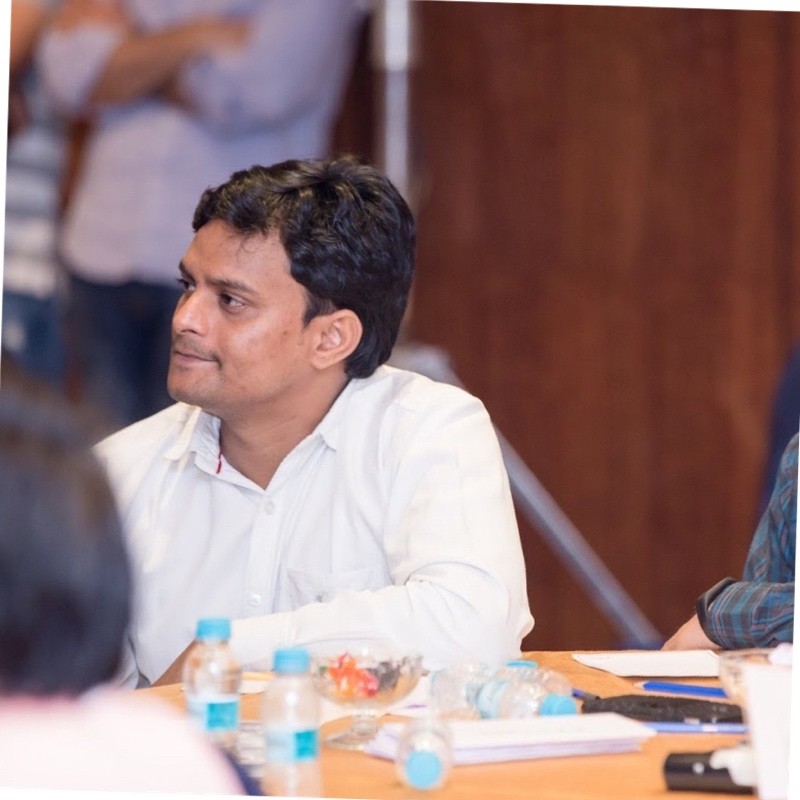Thoughts and Predictions of SEO in 2025
SEO in 2025 will focus on AI-driven search, voice and visual search, and user experience. With smarter algorithms and SEO in 2025 evolving, brands must prioritize quality content, E-E-A-T, and interactive elements like Mixed Reality. Personalization, intent-focused seo strategies, and technical SEO will be key to staying ahead.

Peter Rota
Senior Technical SEO Manager at Hub International
Google will continue to reward sites that actively build their brands and have a mult-traffic approach. Sites that do not create strong brands may have short term success, but open themselves up to get crushed by Google updates long term.
ChatGPT and other LLMS will continue to shrink the market share for search engines like Google and Bing.
With the barrier of entry to create content being as low as ever with AI, Google will place more importance on backlinks and devalue content. But, content that is high-quality will be rewarded.
AI overviews will continue to take more traffic from sites that target top and middleish type of funnel queries, but at the same time conversions will grow since more traffic will convert.
The quality of Google’s search results will continue to suffer and at the same time they will introduce more SERP features to keep users in their search results, so they do not need to visit websites for that info. Thus, taking more search clicks from websites.
Ranking high in Bing will be paramount as site’s that show up high in there generally rank well in LLMs, since they’re the primary source where ChatGPT is pulling it’s search results from.
Marketers as well as some SEOS will continue to say “SEO is dead” because they can’t rank or they do not adapt and change their business model.

Devendra Saini
Head of SEO & ASO @ MPL
Focusing on a people-first content approach that comes with firsthand experience and provides information gain to users as well as search engines
SEO is not just limited to Google but try to build your brand across all the channels to create brand authority, which will be one of the crucial ranking factors going ahead
Adapt AI in your work streams in inputs and outputs; AI will stay with us now. Whether it’s chatGPT or Ranking in AIO, all of this will change and improve fast, so SEOs and content marketers should adapt to the era of LLMs and GenAI for better sustainability.

Nishant Desai
SEO Manager at Link Publishers
Ensure Google Can See Your Content – Before publishing, make sure Google can properly view your content.
- Check Rendered Output: Use Google Search Console’s URL inspection tool to see what Googlebot sees. Copy the rendered HTML and paste it into your browser to check the content’s visibility.
- Avoid Dynamic Content: If your page relies on actions (like clicks or scrolls) to load content, Google might miss it. Use pre-rendering for JavaScript-heavy sites to ensure everything loads for crawlers.
- Accessible Resources: Ensure images, scripts, and other elements are available for Googlebot to crawl.
Keep Your Site’s Index Clean – A clean index helps Google rank your pages better.
- No Redirect Chains: Avoid multiple redirects; they slow down crawling and waste link equity.
- Limit Duplicate Content: Avoid having many pages with the same or similar content. Use “noindex, follow” tags where needed.
- Handle URL Parameters: Clean up URL parameters (e.g., ?sort=price) to avoid duplication and ensure your pages are crawled efficiently.
Focus on Quality Content – Good content is essential for SEO.
- Remove Outdated Pages: Delete or update old pages that get little traffic or provide no value.
- Match Search Intent: Write content that solves users’ problems and answers their questions. Stay focused on the main topic.
- Update Regularly: Make sure your content stays relevant. Update old posts with new info to keep them fresh.
- Avoid Keyword Stuffing: Write naturally. Don’t overuse keywords or phrases to avoid looking spammy.
Improve Internal Linking – Internal links help users and search engines navigate your site:
- Link Relevant Pages: Use internal links to guide users to similar or related content on your site.
- Use Clear Anchor Text: Link text should be descriptive so users and Google know what the linked page is about.
- Create Simple User Journeys: Make sure users can easily find important pages by organizing your site and navigation effectively.
Build Your Brand ( Pillars of SEO in 2025 ) – A strong brand boosts your SEO:
- Drive Brand Searches: Encourage people to search for your brand directly by building awareness and trust through great content and customer service.
- Earn Quality Backlinks: Get links from trusted sites to improve your authority. Write high-quality, shareable content that others want to link to.

Pankaj Prakash
Heading SEO Strategy (Organic Growth) Medfin
The SEO landscape is evolving rapidly, with Google frequently updating algorithms and SERPs becoming increasingly competitive. To stay ahead in 2025, brands must adopt a proactive approach.
User Experience (UX) Takes Center Stage:
Google prioritizes websites offering exceptional user experiences. Focus on easy navigation, intuitive design, and mobile responsiveness. Understand how users behave on your site—time spent, pages visited, and bounce rates are critical engagement metrics that influence rankings.
Behavioral Metrics as Ranking Signals:
User behavior, including dwell time and page interactions, will play a larger role in determining search visibility. Improve your content to align with user intent and keep visitors engaged.
The Power of User Reviews:
Genuine, positive reviews not only build trust but also contribute to SEO success. Encourage customers to leave reviews and showcase them prominently.
Rise of Answer Engine Optimization (AEO):
Platforms like Quora and Reddit are shaping search. Optimize for question-based queries and featured snippets to capture this growing trend. Include FAQ sections and participate in relevant forums to enhance visibility.
In 2025, success in SEO will depend on your ability to create user-centric, easily navigable, and highly engaging websites while adapting to Google’s algorithmic shifts.

Mukul Maheshwari
SEO Manager at Flyhomes | Ex-EY
The future of search engine optimization will be the stronger focus on user intent. There will be a shift in favor of personalized, quality, and user-centric content. As search engines become much more sophisticated, their better understanding of context, intent, and individual preferences can redefine SEO strategies.
User Intent: Search engines such as Google are maturing to move beyond keyword matching to intent behind a search query. Instead of focusing on keyword frequency, SEO will focus on optimizing content around what users are really looking for—whether it is informational, transactional, or navigational. Marketers will need to align their content with the different stages of the user journey, delivering answers, solutions, or products that directly address specific needs.
Future Search personalization based on the type of results, locations and search histories, or other data about individual users, as well as behavioral information about which users and which ads were considered most useful. Content creators will be required to cater to this personalization while developing strategies for their search engine optimization. Therefore, knowing a user persona with all the unique requirements will form a basis in creating the perfect content appealing to those individuals.
High-Quality Content: AI and advanced algorithms will enable search engines to distinguish better quality content. Comprehensive, authoritative, and genuinely helpful content will be favored. SEO will focus on creating well-researched, engaging, and useful content rather than just keyword-stuffed articles. Long-form content, multimedia, and interactive elements will become more important as they provide richer user experiences.
Ultimately, SEO will be about delivering content that ranks well but also meets the expectations of users in terms of relevance, quality, and personalization.

Manikandan N
SEO Manager – Disprz
As we approach 2025, the SEO landscape will continue to evolve with advancements in technology and shifting user expectations.
Here are some key trends and considerations:
Semantic SEO and Contextual Relevance:
Search engines are increasingly focused on understanding user intent through natural language processing. Optimizing content for topics instead of isolated keywords, ensuring entity-based relevance, and leveraging structured data will be critical for ranking success.
SERP Evolution and Features:
- Google Ads Integration:
Google’s experiments with placing ads between organic results will significantly impact CTRs for traditional rankings. Understanding these changes and optimizing for both paid and organic visibility will be vital.
- AI-Powered Overviews:
Features like AI summaries on the SERP will provide instant answers, reducing click-through rates for some queries. However, ensuring content is optimized to be featured in these overviews can enhance visibility.
- Dynamic SERP Features:
The SERP is becoming more interactive with features like People Also Ask, video carousels, and visual elements. Optimizing for these formats will ensure better engagement and higher visibility.
Generative AI and Content Strategies:
While AI tools are revolutionizing content creation, the emphasis must remain on delivering unique, actionable, and user-centric content. Blending AI efficiency with human creativity will define effective content strategies.
Multimodal and Voice Search Optimization:
As users increasingly rely on voice, images, and even AR/VR for searches, semantic tagging, schema, and optimization for diverse content formats will become key to staying ahead.
Data-Driven SEO:
- BigQuery and GSC Integration:
Integrating Google Search Console data with BigQuery provides advanced analytics capabilities, enabling granular insights into keyword performance, CTR patterns, and ranking trends. This integration helps SEOs make informed, data-driven decisions.
- Affordable Tools Like SEOgets:
While enterprise tools dominate the market, affordable options like SEOgets provide actionable insights without the heavy investment. These tools democratize SEO analytics, making it accessible to smaller businesses and individual SEOs.
- Predictive Analytics:
Using predictive models based on historical performance data helps in forecasting trends and prioritizing strategies with high ROI potential.
SEO in 2025 will demand adaptability to technological shifts, understanding user behavior, and maintaining a balance between innovation and a user-first approach.

Gayatri Pandit
Group Head – SEO @ Webenza
Google algorithm updates are constantly evolving, and 2025 will be no exception. With 2 core updates and 1 spam update rolled out back-to-back within 2 months (November–December 2024), it will be interesting to see how these changes impact SEO performance. Here are a few key trends and considerations for 2025 to ensure your SEO strategies are hitting the mark.
AI-Driven Content and Personalisation – As AI continues to drive innovation across industries, it is crucial for SEO to evolve in tandem and leverage its potential to achieve impactful outcomes. AI-powered tools will transform keyword research, content optimisation, and user behaviour analysis. The focus will shift towards balancing automation with creativity to craft personalised, user-centric content. Hyper-personalisation in content strategy is required to meet rising consumer expectations, improve engagement, and drive conversions. Leveraging data and AI, brands can create customised experiences using CRM insights such as dynamic LPs and segmented user journeys that build trust, enhance user experience, and provide a competitive edge.
Multimodal Content & E-E-A-T Strategy – Quality content has always been the most important element for SEO. Focusing on content that showcases expertise, experience, authority, and trust (E-E-A-T) will continue to be a top priority. Publish well researched information, emphasise authorship credentials, and address YMYL topics to build credibility and enhance user trust. Content in varied formats will be crucial for maximising impact. Enhance visibility with optimised images, video schema, and structured data.
Contextual Relevance & Multilingual Strategies – Move beyond keywords. While keywords are still relevant, their role has evolved significantly. Focus more on user intent and content quality rather than simply targeting specific keywords. Structure your content to address different intents, ranging from informational to transactional queries. Adapt content for hyper-local audiences and international users. Use hreflang tags and relevant approaches to connect with diverse audiences.
Mobile-First and User-Centric Design – A mobile-friendly website optimised for core web vitals, fast loading, and visual stability is a must with mobile-first indexing. Prioritising seamless accessibility, inclusive design, and optimal mobile performance will significantly influence rankings.
Adjust Strategies for the Zero-Click Search Trend – Optimise your content to appear directly in snippets and knowledge panels. Refine your strategies to drive traffic through alternative channels as zero-click SERPs continue to grow.
Take calculated risks to prune content, clean up the website, and make it technically sound. Remove unhelpful, stagnating content to keep your site relevant, engaging, and optimised